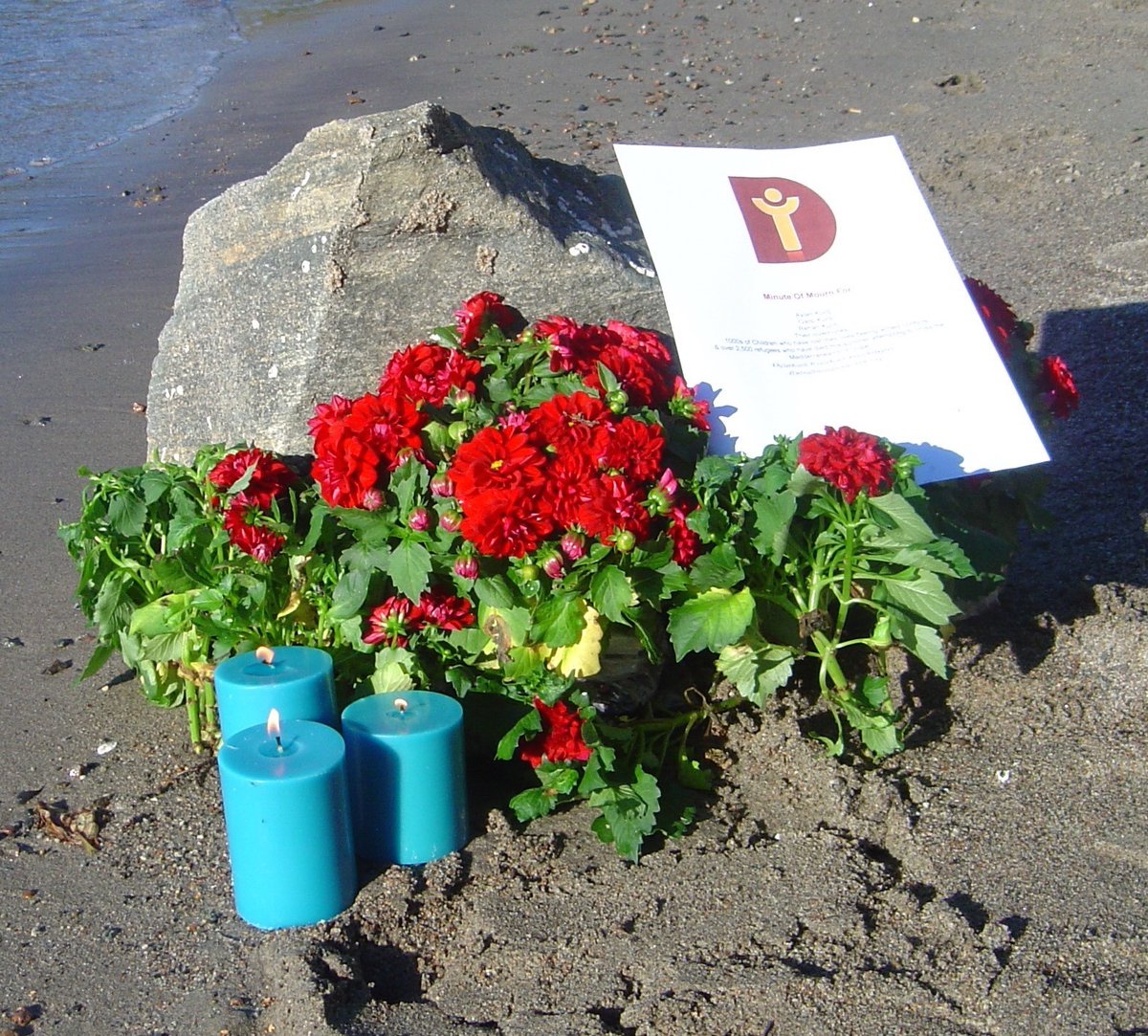5 years ago, Aylan Kurdi, a Syrian refugee toddler drowned as his family tried to make it to Greece on a smuggler& #39;s boat. The image of the little boy, face down with his blue shorts and red shirt, on a Turkish beach went viral. It came to symbolize the refugee crisis.
Even though the Syrian refugee crisis had begun in 2011, it only really became a Crisis when these refugees were trying to reach Europe. On route to Greece, tens of thousands of refugees have drowned. They still drown today.
The reason why thousands of people risk their lives and children& #39;s lives to get on these boats, without protection, often in extreme danger, is that they are willing to bet on the chance of a better future for their children.
This promise didn& #39;t come from thin air. Countries like Germany opened their borders for 1 million refugees, but didn& #39;t plan how these refugees would actually get there. So they swam. And they walked. Many of them were separated along the way. Many of them died.
Humanitarian agencies, yes I& #39;m looking at you @UNHCR, could have done so much more to ensure the safe passage of refugees from countries like Turkey and Jordan to Germany. Families paid $$$ to get on smugglers& #39; leaky rafts — they could have instead paid for plane tickets.
The Mediterranean is a graveyard of thousands of Syrians and other refugees who perished for no reason. I remember @TamaraAlrifai describing imagined ghost cities at the bottom of the sea where children play and families are finally at peace.
Once in an interview in that fall of the "refugee crisis," when Syria was still in the news, someone asked me why Syrians weren& #39;t trying to come to America (lol). I answered, "Because they can& #39;t swim here."
I remember being asked by so many kids in southern Turkey, "How can I get on a boat? Help us get on a boat." I tell them that it& #39;s not safe to go. And they look at me in despair, "Then what are we supposed to do with our lives?"
The other tragedy to emerge from the global attention on the "refugee crisis" was that it was suddenly very easy to separate the Syrian crisis into two parts: the war (too messy, too complicated, too political) and the humanitarian response.
When the entire time, from March 15, 2011 until now, the Syrian humanitarian crisis is the direct result of the war. No one wanted to stop the Assad regime& #39;s barrel bombs, chemical attacks, hunger sieges, torture factories, etc, but everyone wanted to help refugees.
Today, there are over 6 million Syrian refugees. And the only reason there aren& #39;t 6 million more is because the borders closed on them. They are refugees inside their country. Before 2011, there were zero.

 Read on Twitter
Read on Twitter


